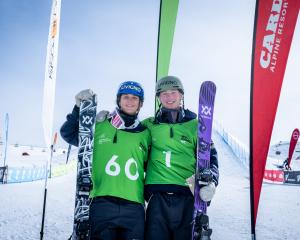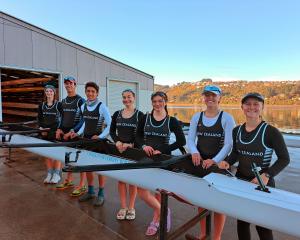It has been 29 years since John Minto was the king of sport protests during the 1981 Springbok tour.
I remember feeling very moved seeing this face of a protester fighting against apartheid in South Africa, the elitism of rugby and inequalities in New Zealand society.
Minto became synonymous with sport protests in my mind.
However, after a long hiatus, his latest attempt at protest, against the participation of Israeli tennis player Shahar Peer at the ASB Classic tournament, was heartbreaking to witness.
Rather than feeling moved to debate the issues he raised with family and friends, I found myself feeling pity for Minto.
Minto's tenacity and doggedness when it comes to his belief in sport boycotts as effective methods of change has to be admired, but I doubt the eight or so individuals protesting Peer's involvement in a tennis tournament in New Zealand will bring about significant changes in the Israel-Palestine relationship.
The only action that could result from this recent protest is the destruction of Minto's loud-hailer by the police.
Despite Peer's naive claims that there was no case for involving politics in sport, and that what was happening between Israel and Palestine was not her fault, one only has to take a brief break from picking an outfit to wear on centre court to see that politics is what makes sport tick.
Politics is more than what happens in the Beehive or the White House.
Politics is any process involving the exercise of power, control, constraint and coercion in society, and sport in all its forms is a part of society.
From decisions regarding where world events will take place, to major sponsors dropping Tiger Woods as fast as the golfer dropped his plus fours - politics surrounds and infiltrates sport.
Why, then, was Minto's most recent protest attempt a sad affair, compared to the highly emotive and effective protests that rocked New Zealand society in 1981?
Minto was fighting an uphill battle with the Peer protest from the start.
Tennis isn't really a sport for the masses in New Zealand, and the Israel-Palestine issue wasn't going to capture the imagination or emotions of the average New Zealander.
From a global perspective, the media audience for the ASB Classic wouldn't have been that extensive either, so I doubt many Israel supporters were tuned in.
Another trend Minto might want to consider is that protests these days tend to happen in cyber-space rather than on the sidewalks.
Generation Y tend to vote and protest with the push of the "Enter" button on their computers, and the swipe (or not) of their eftpos card.
The millennial generation has realised that dangling the carrot as opposed to wielding the stick is a better way of bringing about change.
Consumer choice in a highly commercialised world appears to be more effective than placards, loud-hailers and catchy protest chants.
The Save the Turbos and Makos campaigns, for instance, were bolstered through the worldwide web's ability to move the masses to shut down their laptops and protest with their feet, by attending NPC games as a collective show of unity in front of national rugby administrators.
There is still a place for visible protests, as the Foreshore and Seabed hikoi, and anti-ACC levy motorcyclists demonstrated.
It is inspiring to see large numbers of individuals fighting for what they believe in, but unfortunately for Minto and his soon to be destroyed loud-hailer, the days of public protests being an effective agent of change at small sporting events are numbered.












